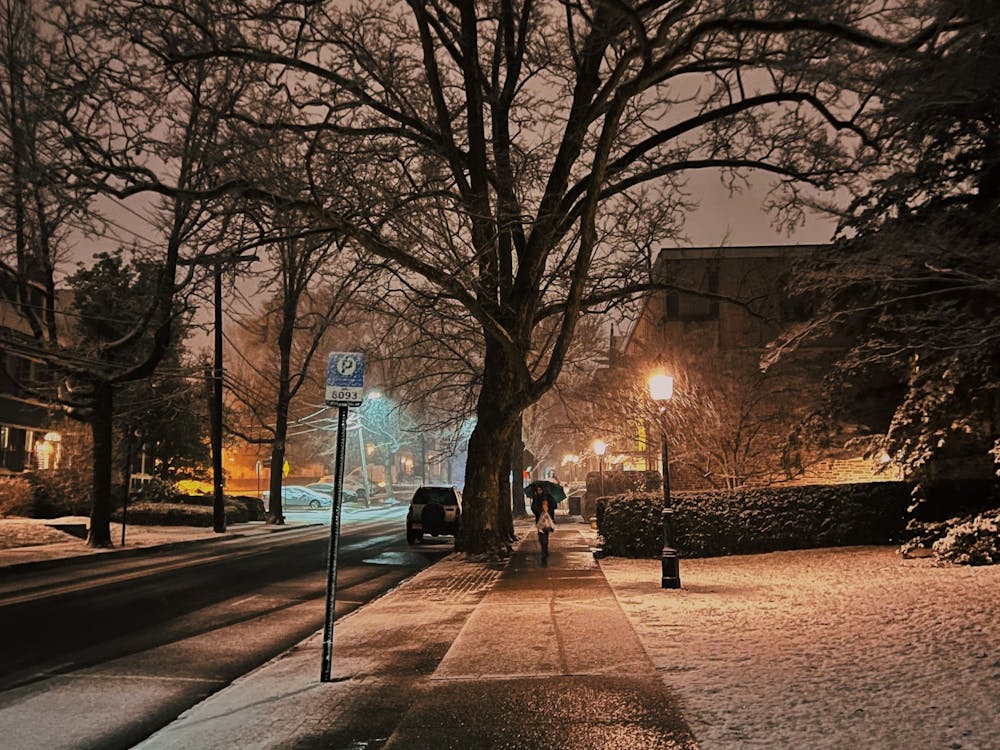I've been going to the Arab section of Jerusalem's Old City every other week for the last two months, even though the university where I'm studying tells us it's not safe to do so. Sure, there's always a slight twinge of anxiety when we first reach the Damascus Gate entrance to the Muslim Quarter and walk through the crowds, surrounded by shouting men and boys trying to sell everything from produce and candies to socks and batteries. Their voices ring out as I grip my friend Spencer's hand a little tighter and hope we're not separated by the swarms of people.
But the nervous feelings pass quickly as we walk down the main road of the suk, the Arab market. My focus returns to the surroundings — old women who sit selling vegetables, stands with desserts, the occasional "welcome" from a street vender or a wink from an Arab man. Usually, we stop to buy desserts, sharing them between ourselves as we maneuver through the crowded street, our hands sticky from the honey and sugar.
We make our way past the clothes stores, restaurants, coffee stands and butcher shops, with fresh meat hanging from the ceiling. The crowds thin as we enter an area filled with stores with all sorts of souvenirs from the Holy Land. We start getting offers from the shopkeepers whose livelihoods depend on tourism. "Would you like to see my shop? No charge for looking." We just look down as we walk and smile politely. "No thanks." Jerusalem is virtually devoid of tourists because of hamitsav — the situation — and the shopkeepers are desperate for customers. But we don't stop so that we're not late for our meeting with Solomon in the Christian Quarter.
As we reach Solomon's shop, he sees us and smiles. "Ahlan wasahlan," he tells us. "Welcome." He sees my friend Spencer, who introduced me to him, and calling him by his name, asks how we are. He doesn't usually remember my name, but then again, I'm one of his new acquaintances. Soon he has ordered us sweet tea with mint from a nearby shop and invites us to sit for awhile. We ask how business is going and compliment him on the new arrangement of his shop (he's always changing it around). He shows us his latest purchases from Tel Aviv and tells us that things are all right. There aren't many customers nowadays, but he manages. He asks about our other friends who couldn't make it this visit, and we tell him how they are. For the female newcomers we bring to meet him, there is a collection of beads from which to choose and Solomon makes each girl a ring — free of charge, as is the tea. We look around the shop, deciding what we'd like to buy this time — jewelry, hats, wall-hangings, chess and sheshbesh, or backgammon, sets, Israeli and Pales-tinian flags, carved olivewood nativity scenes, ceramic and glass crafts and tons more. "I sell everything," he says, "but there's no one to buy."
If Solomon doesn't have what you need, he'll take you to a place that does. Once I needed a watch, so he accompanied me to a watch store and bargained to get me a good price. But his hospitality goes even beyond that. When Spencer's family came to visit, he drove them all over the Mount of Olives in his car. Later, we had him over for dinner at the dorms. It's funny how normal that seemed at the time, but if I stop and think about it, I realize how unusual it is for an Arab shopkeeper to have dinner with American Jews and Christians in the dorms of Hebrew University.
In fact, most of the experiences I've described are not commonplace occurrences in Jerusalem right now because there is a Palestinian intifada — uprising — going on. Since I've been here, there have been at least four attacks — shootings and bombs — that occurred less than ten minutes away from my dorm. When the Sbarro's restaurant was bombed, I didn't learn about it from the radio or the television, but from the sound of sirens as ambulance after ambulance passed by outside my window.
To live in this city is to get knots in your stomach when you hear two ambulances go by in a row. It's to cope with the fact that your friend arrived on the same block as Sbarro's five minutes after it blew up. And that each time you go into town, your life is at risk. I can understand that some Israelis and Americans are scared to come to Jerusalem and that almost all stay out of the Old City, especially the Arab parts.
Some people think I'm crazy for going to the Old City at times like these, but it is because of times like these that I need to go. I need to know that there is a Palestinian named Solomon at whose shop I am always welcome. I need to be able to think of the name and face of a Palestinian I trust and respect so that when I hear the sirens or read the newspaper I can remember that this conflict is not only about Israelis and Palestinians. It's about real people — good and bad — whose lives are affected by the violence.

Rachel Smith '03 is a Near Eastern studies major from Flushing, N.Y. She is currently studying abroad in Israel.








